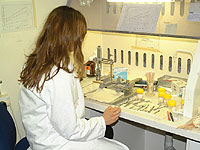|
||||||||||||||||||||||||||
| Microbiology - MICRB13930 | ||||||||||||||||||||||||||
Microbiology is the scientific study of the smallest forms of life namely, bacteria, viruses, archaea, fungi and protozoa. These fascinating organisms impact on our lives in many ways. On the negative side, they cause disease in humans, animals and plants, and they spoil our food. However, microorganisms are also of great benefit. Indeed, microorganisms are the key participants for the turnover of nutrients and elements and they are the main producers of carbon and biomass. They turn the biological wheels on this globe and are responsible for sustainability of life. They also contribute to a better environment via recycling of organic wastes, maintenance of soil fertility and biodegradation of pollutants. Many foodstuffs, beverages, pharmaceuticals and other products of biotechnology are products of microbial action. The genetic engineering of microorganisms is a fundamental aspect of molecular biology and the way of the future.
A major in Microbiology is comprised of 72 units of credit of courses as follows:
Stage 1
Notes:
Stage 2
PLUS 6 UOC from:
Stage 3
Recommended electives (these courses are not required but are recommended as good complementary courses for this major):
For further information on Honours in Microbiology, please see the Microbiology Honours entry in this Handbook.
|
||||||||||||||||||||||||||



